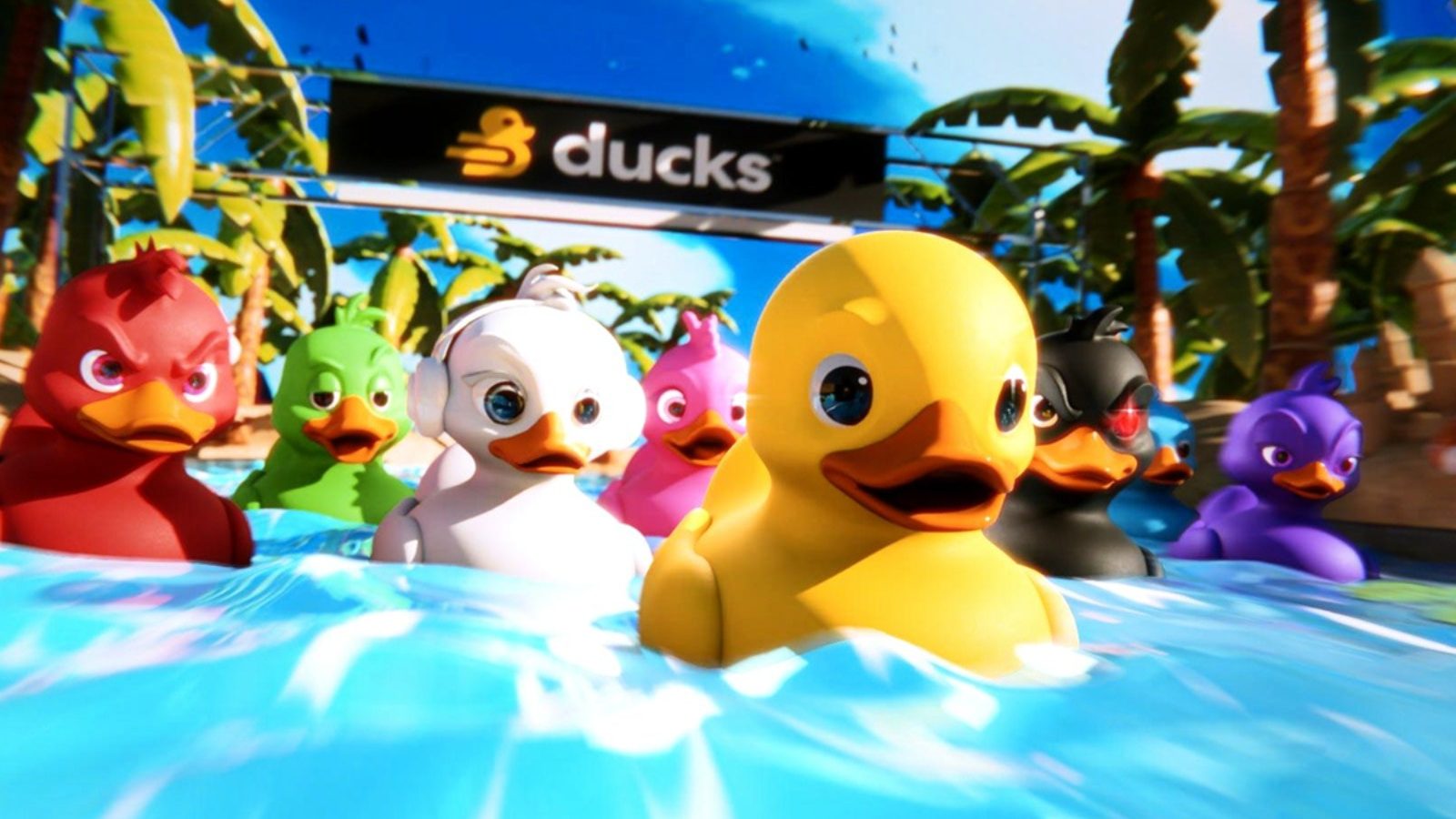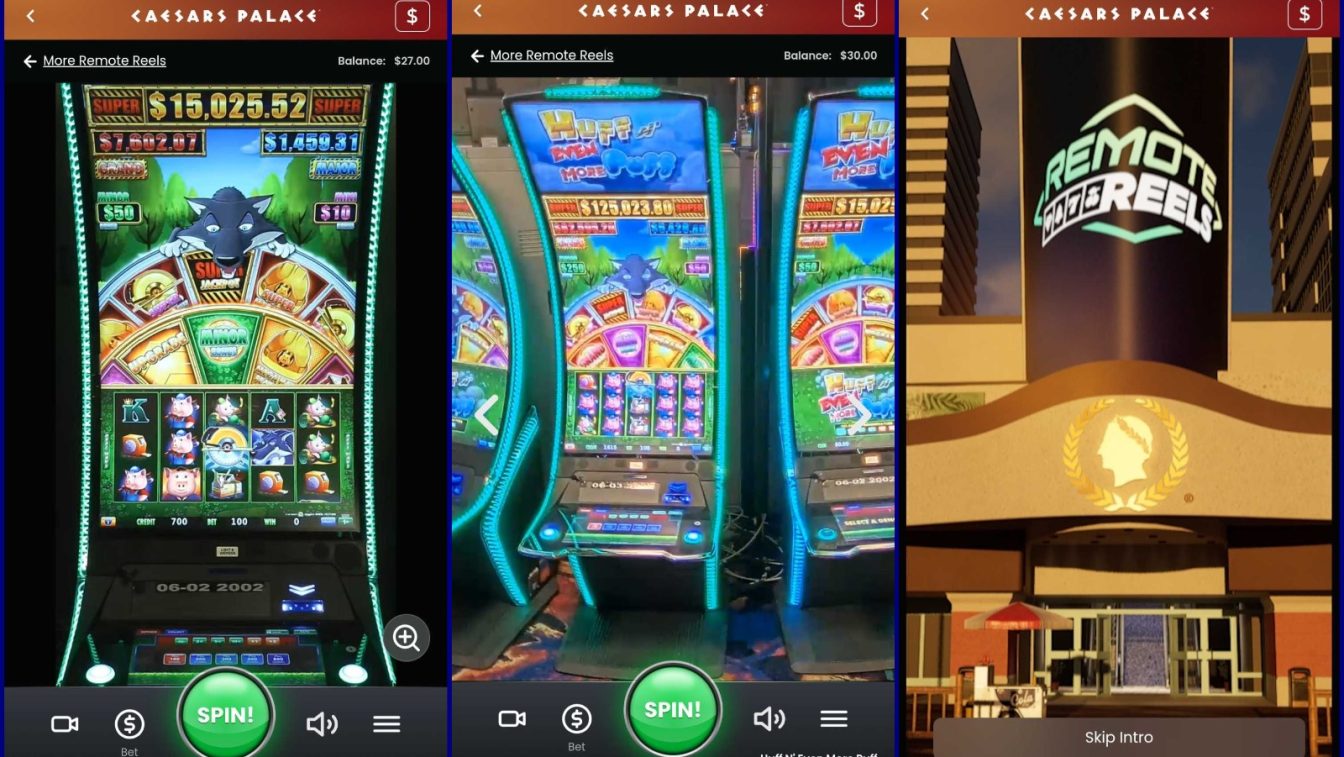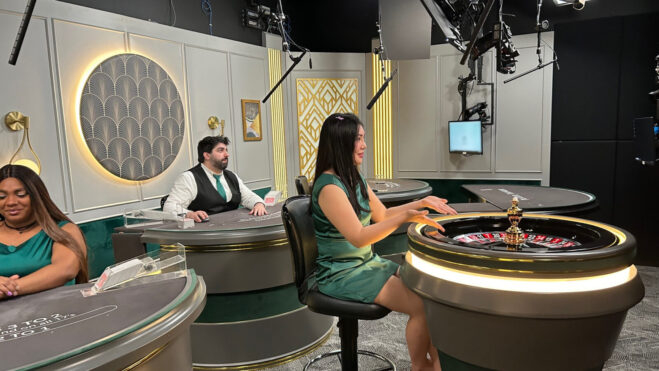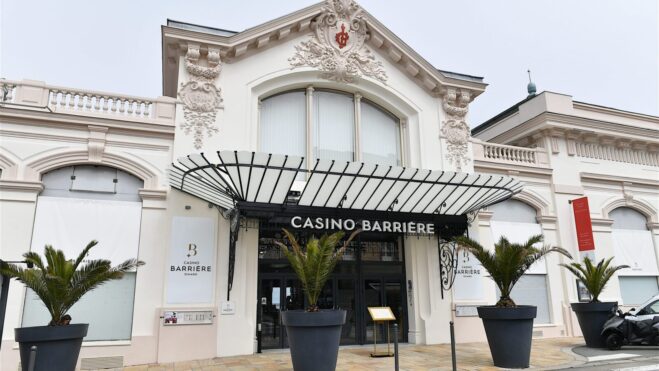Getting Your Gamble On With … Marbles And Plastic Duckies
In a tech-driven gambling world, Sam Jones’ 155.io is turning back the clock to an analog past
5 min

Most entrepreneurs chase market inefficiencies or untapped consumer needs. Sam Jones spotted marble racing videos on YouTube and thought, “This would make excellent gambling content.”
“I stumbled across marble racing, which I played as a kid — you know, marbles — and there was a YouTube channel I found with a group of guys in Holland making marble races, and some of them were getting 15 million views on YouTube,” Jones said. “And I couldn’t believe it.”
That turned into a business trip, a move to the UAE, and what might be the most unconventional gambling operation on the planet: 155.io, a company that livestreams marble races, ping-pong-ball drops, and plastic duck races 24/7 for people to bet on.
The wandering entrepreneur
“So I’m a 44-year-old entrepreneur,” Jones said, speaking from Dubai, where he’s lived for the past 18 months with his three kids. “I’ve lived all over the place.”
His career reads like a tale of two completely different lives. For a decade, Jones worked as a headhunter in Asia’s financial markets, “finding overpaid expats to work in hedge funds and investment banks.” He built what he calls “a crazy network” across the region before pivoting entirely into software about 11 years ago.
That transition led him through data visualization for investment banks, sports analytics, and eventually a fantasy sports platform.
“Real time fantasy sport, as you watch live football or cricket on TV, you can bet on micro moments in a game, essentially,” he said.
Then came his Silicon Valley moment: a role heading up marketing at Wish.com during its rise.
“Wish at the time was selling 3 million products a day, from China to the rest of the world,” Jones says. “Two-dollar knickknacks. Avocado slicers. Tools. Knives. Everything.”
The company was moving massive volume but had virtually no brand recognition. Jones’ job was to change that — and change it he did. Under his leadership, Wish sponsored a Los Angeles Lakers jersey patch, backed UFC and Joe Rogan’s podcast, and became “the biggest customer on the planet for Facebook.”
“Wish ended up going public on the NASDAQ. I think it was $11 billion market value at the time when it went public,” Jones said.
The marble moment
After leaving Wish, Jones founded a video shopping company, building something similar to what would later become TikTok Shop across the U.K., Brazil, Italy, and the Middle East. But about a year ago, his entrepreneurial mind started wandering toward a completely different space.
“I was just really starting to think deeply about live casinos,” he explained. “If I picture a live casino, it’s some gimp standing in a tuxedo dealing cards. You know, 7 of diamonds, 4 of clubs, that sort of stuff, and I know for sure my kids’ generation aren’t going to play games like that.”
Jones and his ilk might have been forced into traditional casino games, but today’s audience is “so obsessed with Mr. Beast and TikTok and short form crazy video content.” Jones saw an opportunity to create live gambling content that was actually entertaining to watch.
That’s when he started researching what was trending on YouTube — and discovered the marble racing phenomenon.
“I went and met these guys in Holland and sat down with them and said, ‘Listen, do you do this live?'” Jones said. “And they said, ‘No, everything we do is in a garage and we edit it.’ And I said, ‘OK, do you do anything with the gambling industry?’ And they said, ‘No, we’ve been asked, but we’ve never done it.’”
Jones ended up hiring some of the Dutch marble racing experts and brought them to the UAE, where he built a studio specifically for live marble racing broadcasts.
What Jones discovered wasn’t just a novelty. It was an art form.
“The main guy behind it is actually autistic, and he’s got a real talent for creating this sweeping movement of the marbles,” Jones said. “If the surface is smooth enough and the ball is fast enough and the gradient of the slope is right, you get this just beautiful speed and sound.”
The result is something Jones calls “deeply relaxing” — an ASMR-like experience that’s powered by gravity. Unlike traditional slot machines with their electronic lights and constant stimulation, marble racing feels organic.
“Marbles themselves, racing on wood, powered by gravity, so it’s as old as time in a way,” he said.
They’ve built a dozen marble tracks, surrounded them with automated cameras and sensors, and created a gambling game on top. Players can pick which marble will win. Exacta and trifecta markets are also available.
The expanding universe
Success with marble racing led Jones to experiment with other physical gambling concepts. He spotted another social media phenomenon — people throwing ping-pong balls down staircases into plastic cups — and built his own version.
“I have a robotic arm at the top of the stairs, and we drop 106 ping-pong balls,” he said. “Fifty percent of them are white. Some are orange, some are green, some are blue, and there’s one pink. So if you want 100x return, bet on the pink.”
The newest addition to the 155.io family might be the most ambitious yet: Ducks.io, a plastic duck race featuring what he described as “a 30-meter river made by a swimming pool company here in the UAE, and it’s got wind turbines, jets, waterfalls, a crocodile in there.”
“You can guarantee the one that’s leading at any point probably won’t win,” Jones said with obvious delight. “It’s chopping and changing order the whole way.”
The duck races tap into something universal. Jones was inspired by charity duck races in his home village in the U.K. and the plastic duck shops in tourist destinations worldwide.
“Men, women, young and old, seem to love these little things, so I thought if we could build a game off it, it would have more appeal than a slot machine,” he said.
The name
True to his B2B software roots, Jones designed 155.io as a content provider rather than a direct gambling operator.
“We are making the craziest content and selling it to online casinos,” he said. “We don’t want to be in the taking money business.”
The company works with more than 100 online casinos, primarily in offshore and crypto casino markets, though they’re pursuing certification for regulated markets like Brazil and the U.S.
As for the unusual company name, it reflects Jones’ mobile-first philosophy.
“When I started the company last year, the iPhone 15 was out and I read the screen was 155 millimeters, so I said let’s call the company 155 just to remind us that’s the size of our audience’s attention,” he said.
Despite the unusual nature of his business, Jones sees serious potential ahead. He said he’s working with “an amazing company in the U.S. in the lottery machine business” to develop new concepts, and he’s optimistic about expansion into regulated markets within nine to 12 months.
For now, Jones continues building an empire from his mobile phone in Dubai, creating content that transforms childhood nostalgia into adult entertainment. It’s a business model that might sound completely insane on paper — until you watch a marble race and find yourself genuinely invested in whether the blue marble can hold its lead.
“We’re just creating as many mad concepts as possible that will allow people to have some fun, be entertained, and have a gamble on it,” he said.
In a world of increasingly complex technology and virtual experiences, there’s something refreshingly analog about betting on gravity, physics, and the simple pleasure of watching things roll downhill really, really fast.





